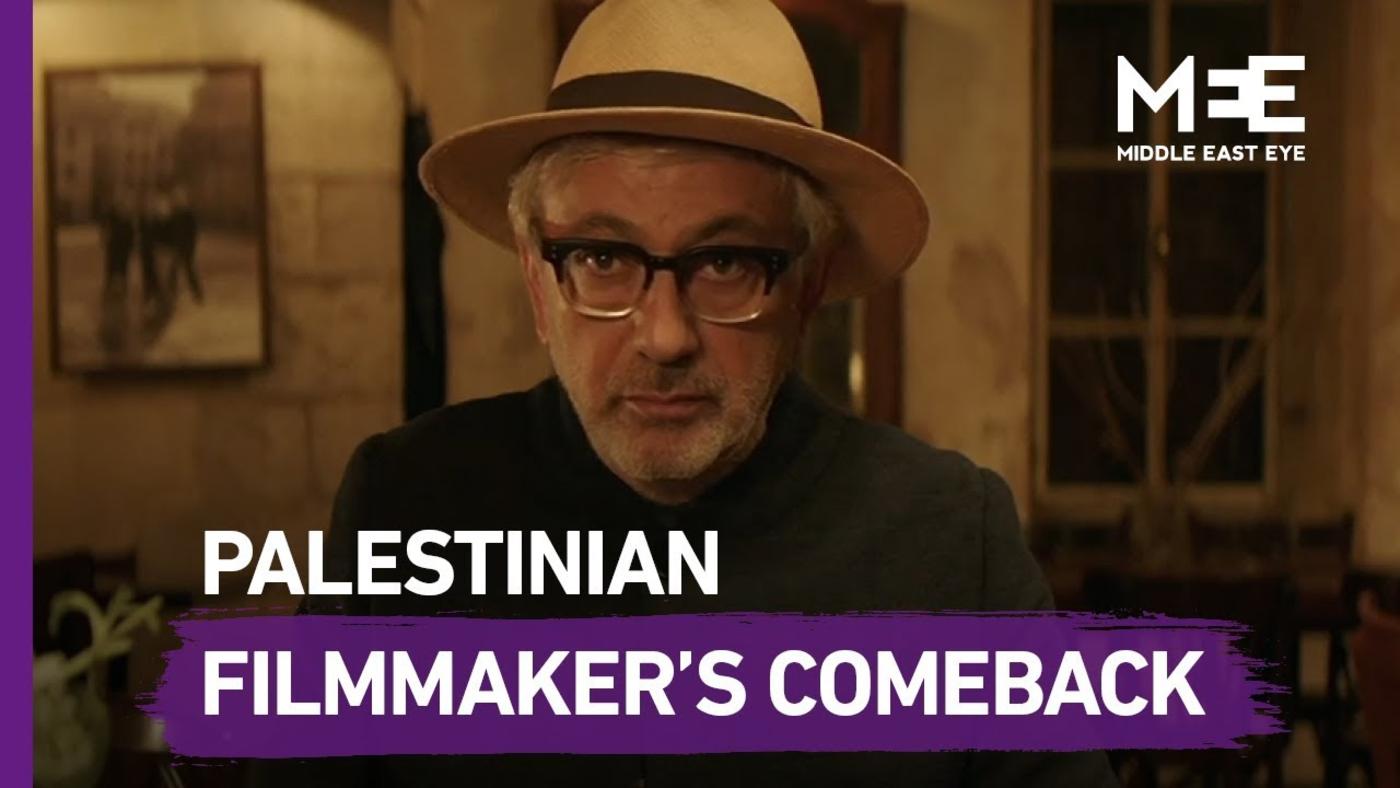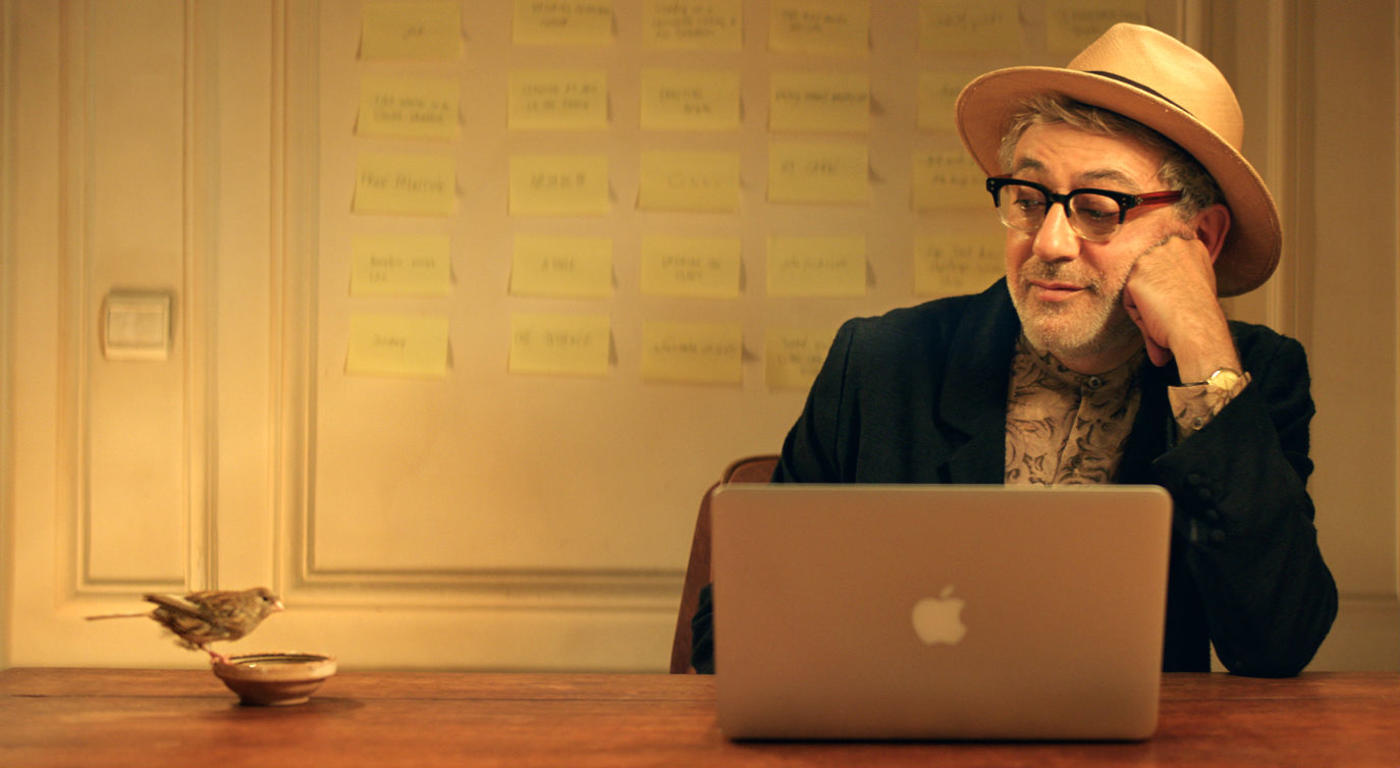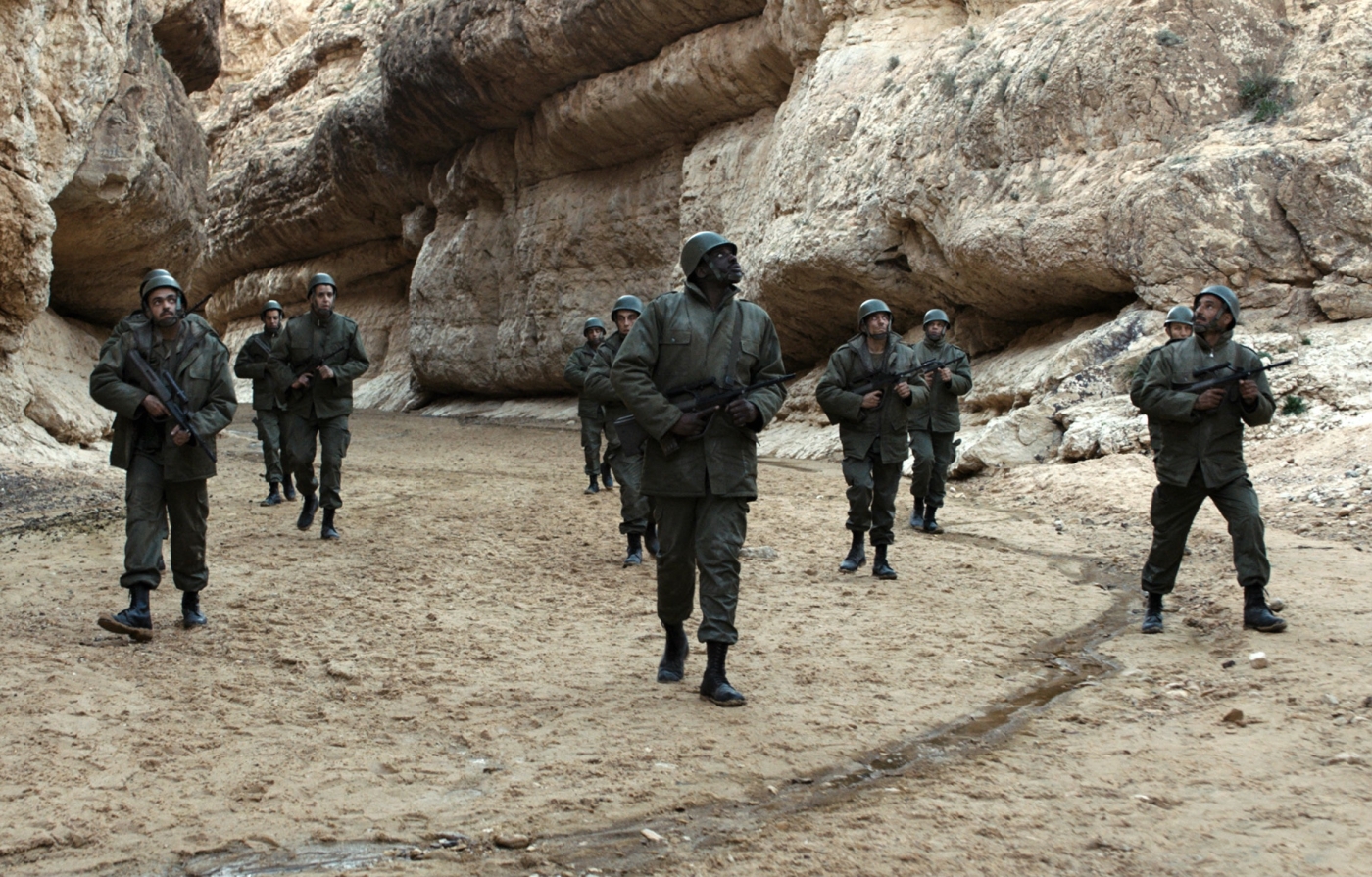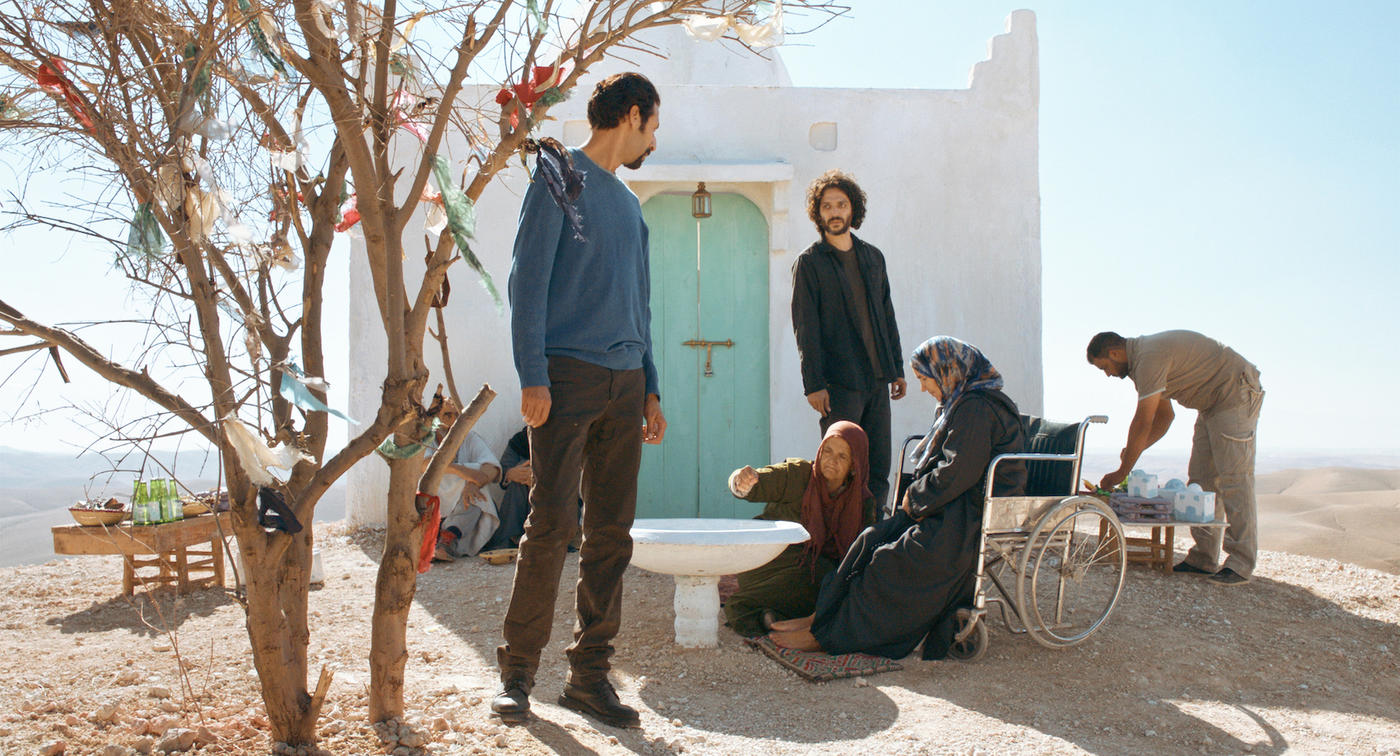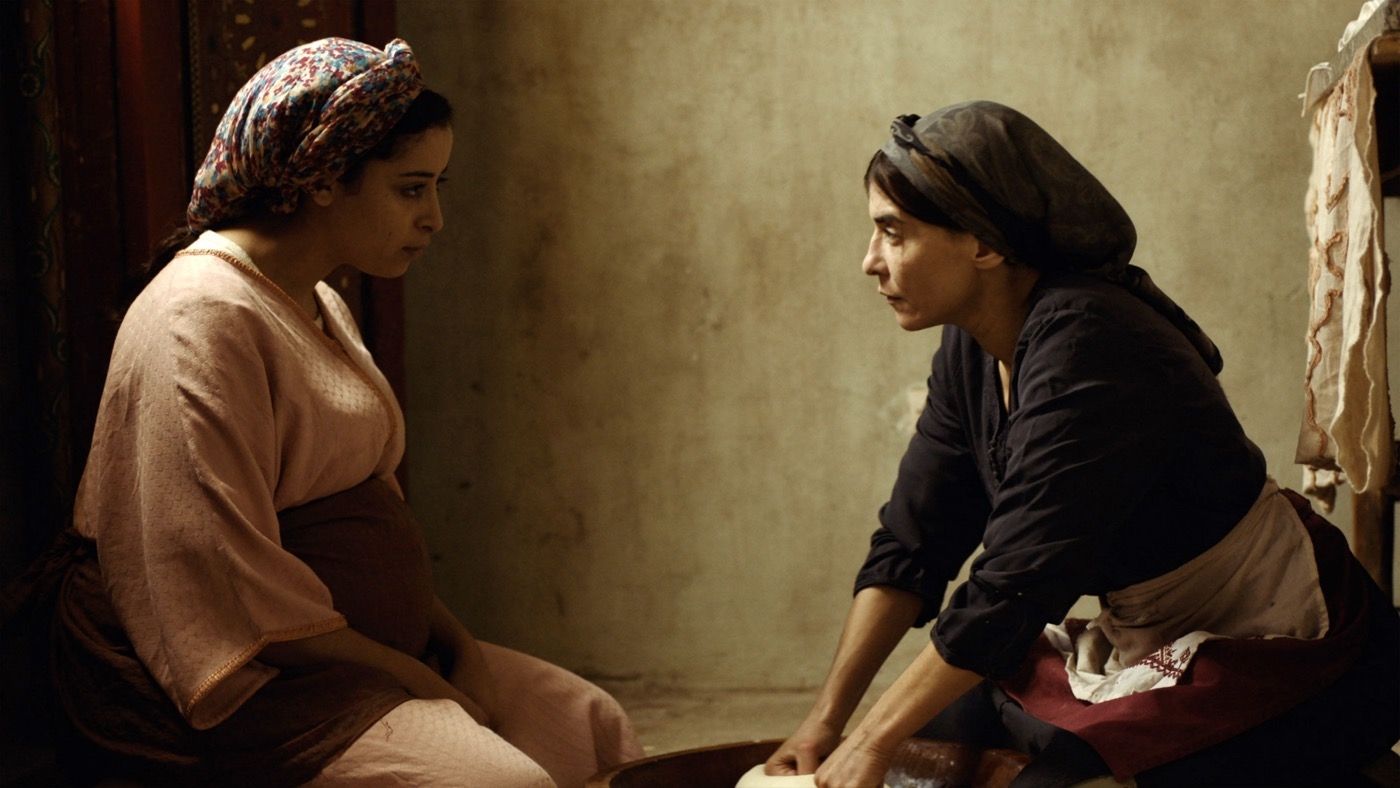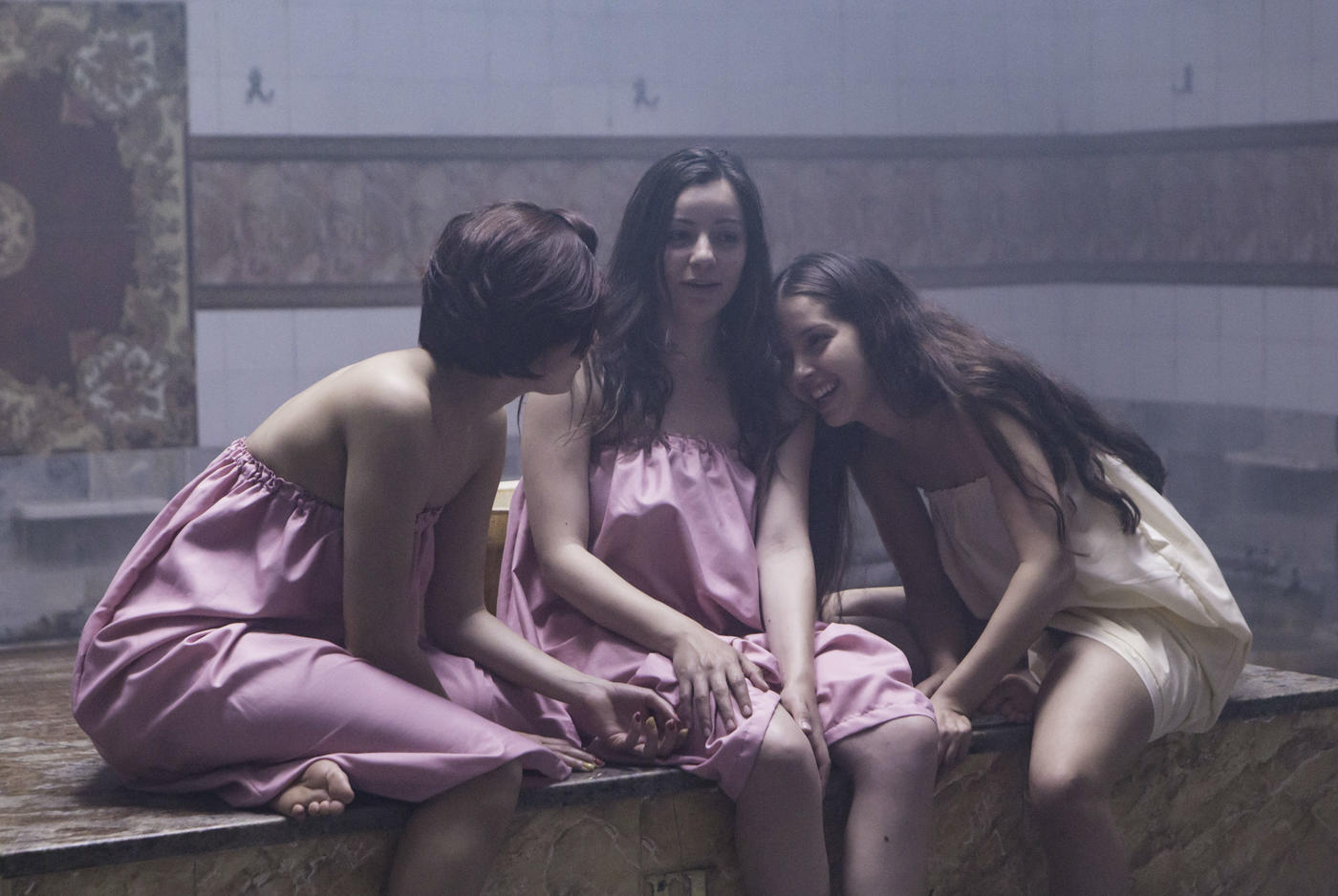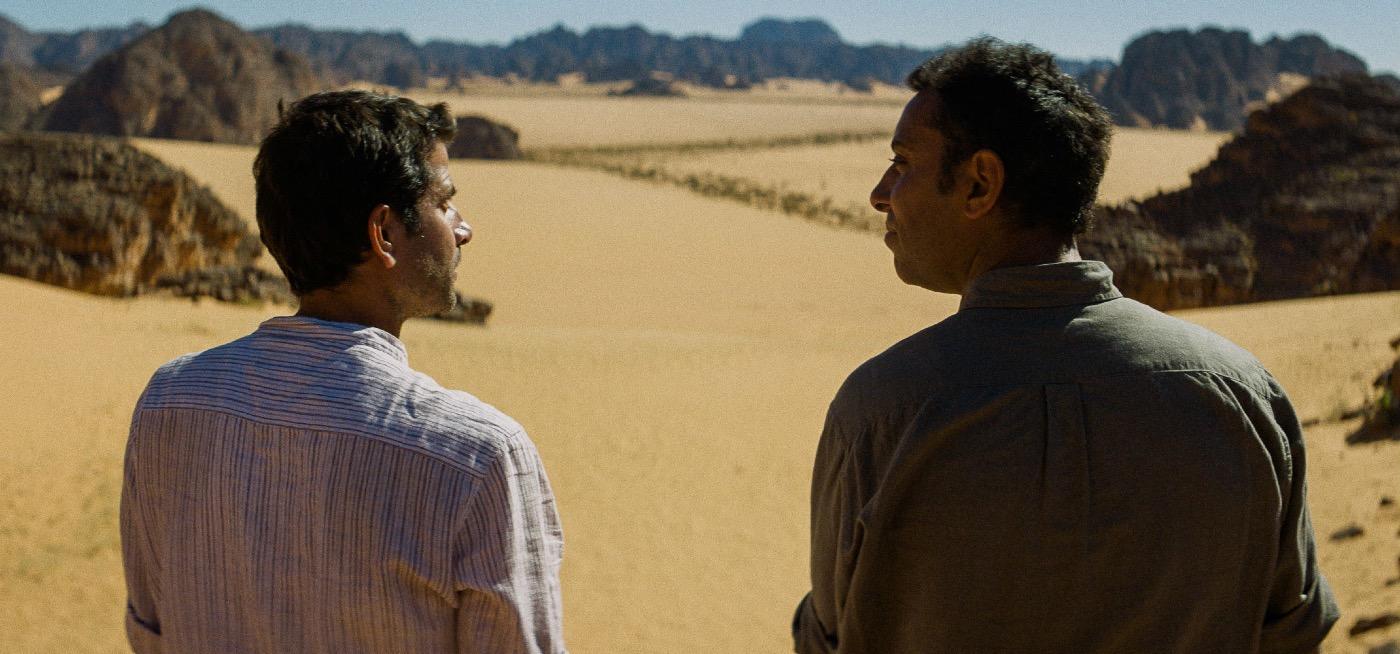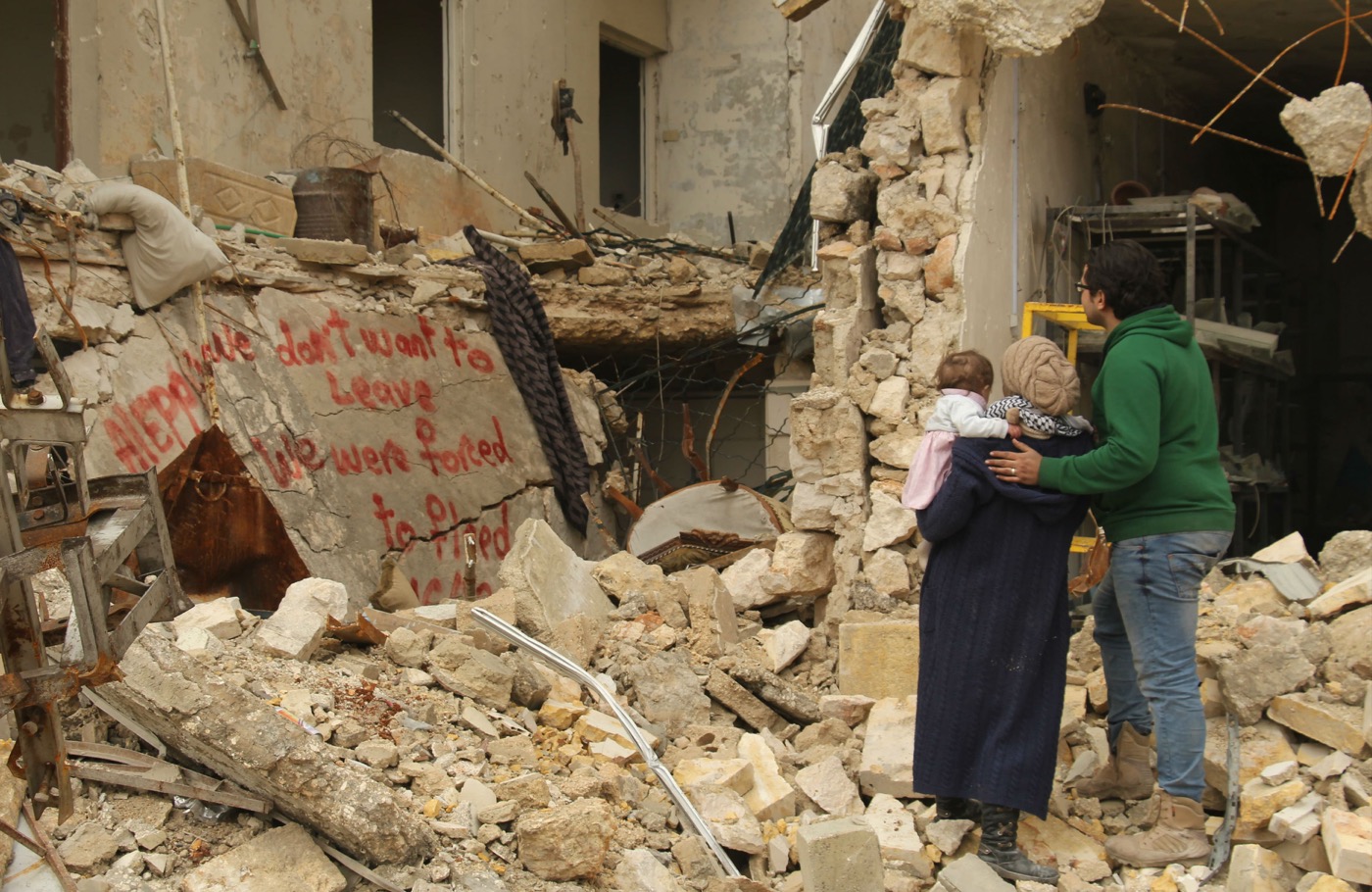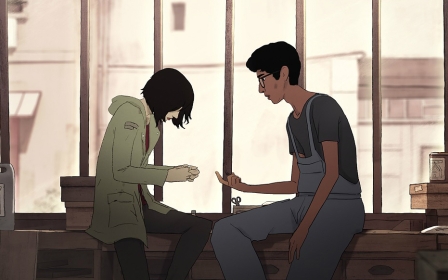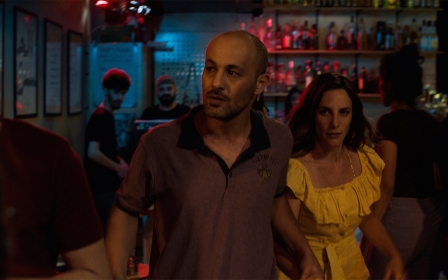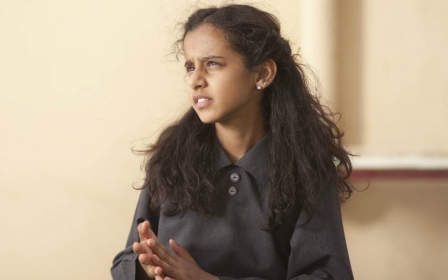Arab films: Seven independent movies to watch out for
For many years, the Arab presence at the Cannes Film Festival has been predicable and tiresome. While the number of participating films has substantially increased, the all-too-familiar themes, subjects and forms remained unchanged. But this was not the case in 2019 - or at least not entirely.
This year, the independently run sidebars of the festival, known as Critics' Week and Directors' Fortnight, demonstrated a boldness and unpredictability - even frivolity – in their choice of films, which was absent from the official line-up, including the main competition.
This was especially obvious when it came to Arab productions. The official selection opted for the obvious. Critics' Week and Directors' Fortnight, on the other hand, selected a deliciously acerbic religious satire, a brilliantly opaque thriller, and possibly the most bonkers Arab picture that has been screened on the French Riviera.
All the features were by first- and second-time film-makers; I have highlighted them below: expect them to be released in the coming months, be it in cinemas, streaming sites or other platforms.
Other films at Cannes also had links to the Middle East and North Africa, if more indirectly, including Abdellatif Kechiche's Mektoub, My Love: Intermezzo (a work of sheer intellectual bankruptcy) and Jean-Pierre and Luc Dardenne's Young Ahmed (a misguided attempt to tackle Islam that ultimately falls on its face). I have written about these elsewhere in Middle East Eye.
New MEE newsletter: Jerusalem Dispatch
Sign up to get the latest insights and analysis on Israel-Palestine, alongside Turkey Unpacked and other MEE newsletters
Most of the films below premiered for the first time at Cannes and may not yet have signed international distribution deals. Some may appear on streaming sites first or go straight to DVD or TV in certain territories. One good source for updated release schedules is IMDB - we have linked to its information on each film at first mention in the copy.
1. It Must Be Heaven (dir: Elia Suleiman)
To call It Must be Heaven, Elia Suleiman's fourth film the most hotly anticipated Arab feature of 2019 is not overstating it. His stature has risen in recent years, while his palpable influence can be detected in the works of film-makers across the region including Wissam Charaf and Alaa Eddine Aljem. After a 10-year absence, he returned to Cannes competition for the third time with his most expensive and most elaborate production yet.
Suleiman, who himself plays ES, the film's stoney-faced observer, is first seen in his Nazareth hometown, stuck in an eternal purgatory with thieving neighbours, quarrelling bar customers, and nonchalantly aggressive Israeli soldiers.
Craving change, he sails to new lands, where he ultimately faces different kinds of monotony. In Paris, he is struck by the seemingly unbridled freedoms and First-World problems; in New York, he's overwhelmed by the epidemic consumerism (which extends to gun purchase addiction) and the pressure to fit in to a sub-community.
In both cities, he pitches a film project deemed "too Palestinian". In both cities, he feels increasingly alienated. The Palestine he strived to escape, it dawns on him, is no different from the Western havens he sought.
Divided into a series of still tableaux seeping with Suleiman's signature deadpan comedy, Heaven shares more kinship with his more fragmented work such as Divine Intervention and Chronicles of Disappearance rather than the more narrative-driven The Time That Remains.
Each fragment of Heaven acts as both a part of Suleiman's world-building, with different anthropological and dramatic functions, as well as meticulously choreographed gags in their own right. But without tangible pay-offs, some of the jokes feel superfluous, uninventive or unfunny. Nor are the insights they attempt to provide particularly enlightening.
Yet when Heaven does work, it results in some of Suleiman's best filmmaking to date; a poetic essay on self-imposed exile and a manifesto of modern Arab frustrations, from humiliating treatment at airports and racist experiences with entitled white art producers to the struggle with identity and inability to fit in a Western world that takes its privileges for granted.
The face of Suleiman's passive observer - dismissive, truculent and weary - is more expressive than in previous films. Suleiman may have succeeded in escaping Palestine, but he eventually realises that he has failed to escape the Palestine inside of him.
2. Tlamess (dir: Ala Eddine Slim)
Tunisian director Ala Eddine Slim’s wordless debut feature The Last Of Us established him as an original, confident and enterprising voice unafraid to push boundaries. With Tlamess, Slim not only pushes the envelope further but tears it up completely. Describing the plot itself is taxing.
A soldier, referred to as S (Egyptian jazz musician Abdullah Miniawy) deserts after his mother dies, and holes up in a forest cave when the police come after him. He later crosses paths with F (Souhir Ben Amara), a rich pregnant housewife whom S escorts and imprisons in his new bunker home after she inexplicitly faints upon seeing him.
At times, Slim's sophomore feature goes utterly berserk.
There's a naked S (in a rare instance of full-frontal male nudity in Arab cinema), embarking on a lengthy silent walk across a different landscape for a substantial part of the film's first half.
There's a black monolith (all very 2001: A Space Odyssey), which suddenly appears in the rainforest during the chase.
There's S and F communicating telepathically, conveyed through subtitles and extreme close-ups of their eyes.
And then there's some gender reversal that occurs near the end, further details of which should not be revealed.
Slim has dismissed possible political readings of Tlamess, yet it is open to various meanings, including repressed individualism in institutionalised societies, the futile search for purpose in a post-God world, and most daringly, the diminishing boundaries in ascribed gender roles and identities.
Tlamess could be all these - or none at all. It doesn't really matter: Slim's sleight of hand is so purposely playful and self-consciously pretentious at times that no formal understanding is needed to enjoy the proceedings. Captivating and maddening in equal measure, it is the wildest Arab ride of the year.
3. The Unknown Saint (dir: Alaa Eddine Aljem)
Alaa Eddine Aljem's debut feature The Unknown Saint has come out of nowhere to inject Arab cinema with a breath of fresh air. It's that rarest of beasts: a smart, side-splitting Arab comedy tackling collective faith, the presiding craving for a saviour and the primal necessity of finding meaning, or rather conjuring up one.
It all begins with a car chase. Amine (Younes Bouab, the eternally frowning scruffy-haired anti-hero of Zero and Razia) is being chased by the police moments after stealing a stash of money. Unable to flee from the looming entrapment, he hurriedly hides his bounty in a deserted village.
After he's released from prison, the thief returns to the village, only to find that the shrine of an "Unknown Saint" has been erected over the spot where he hid his cash.
Meanwhile, the surrounding wasteland has blossomed into a sizeable community built around the mausoleum of this mysterious holy man.
To retrieve the loot, Amine enlists the help of his former partner, The Brain, a dim-witted con-man whose ill-fated antics constantly derail the pair's venture. Amine's fate is also entangled with two different men: Kamal (Anas El Baz), a young doctor arriving in town to take charge of a dispensary that doesn't need him; and Hassan (Bouchaib Semmak), a resident of a nearby dying village which is deserted after its people left and regrouped themselves around the new shrine.
The result juggles remarkable skill, humour and pathos, big ideas and highly entertaining set-ups.
It marks this Moroccan feature, which had its world premiere at Critics' Week in Cannes, as the most original Arab debut of 2019.
4. Adam (dir: Maryam Touzani)
On paper, the plot of Adam, Moroccan director Maryam Touzani's debut, does not excite: the hermetic, static life of Abla (Lubna Azabal of Incendies fame), a baker and widowed mother, which gradually opens up with the arrival of a mysterious pregnant teenager who adamantly wants her baby to be adopted.
But Touzani, the co-writer of Razzi, succeeds in evading familiar tropes associated with North African features about women, refraining from demonising her men or depicting her female characters as victims of a blindly power-hungry patriarchy.
Instead, she injects her modest, amiable story with spades of wit and warmth. Effortlessly, she elicits empathy for her humanly imperfect heroines while sensitively utilising food and music to emphasise the little joys of the pair's otherwise drab lives.
Visually, Adam looks staid and somewhat flat. Touzani avoids using a wide lens, maintaining her focus strictly on her characters via mostly medium shots and close-ups. The colourful setting of the working-class neighbourhood is also never fully brought out. It's a straightforward approach that, while it does not divert attention from the characters, ultimately feels dull.
More problematic however is Adam's treatment of motherhood. Touzani boldly challenges traditional notions of maternity, depicting the baker as a struggling mother who takes no joy in parenthood, while objectively stressing that the girl's decision to give up her baby is a personal choice, immune from judgement.
Alas, Touzani ultimately fails to hammer this point home, ending Adam on a vague note that succumbs to the unchallenged convention of instinctive motherly love and sacrifice. Neither a revelation nor a disappointment, Adam comprises enough virtues to warrant Touzani the benefit of the doubt for her subsequent projects.
5. Papicha (dir: Mounia Meddour)
Papicha, the debut feature from Algerian director Mounia Meddour falls flat on its face. Set in 1997 during the civil war, rising star, Lyna Khoudri plays the eponymous lead, a free-spirited French literature student aspiring to be a fashion designer. Unlike her friends, she inexplicably wants to establish herself in Algiers, despite her growing estrangement from society and the raging violence.
When her sister is killed by fundamentalists, Papicha – who for some mysterious reason spends a significant part of the film screaming – organises a fashion show at school as an act of rebellion against the rising religious fundamentalism.
Shot mostly in tight close-ups and strictly told from the girls' point of view, Meddour adopts a no-holds barred approach, enlivening her neon-lit picture with a confrontational, punk attitude akin to giving the middle finger to Islamic radicalism and patriarchy.
But soon this high energy wears off, as the story descends into repugnant cliches and orientalist pigeonholes. Meddour's world view is black and white: all men are bad, nearly all religious people are blood-thirsty monsters, and all the liberal-minded girls are valiant heroines.
There is no subtlety in her characterisations nor hint of intelligence in how she tackles Islamic radicalism, which is personified by a bunch of liberal men-hating women and women obsessed with having every girl in the country veiled.
On the evidence of Papicha, Meddou's world view comes over as little different from the average white Western film-maker in its antagonistic stance against non-white masculinity, a toxic feminist stance which frowns down on anyone who does not share its ideals. By a long margin, Papicha was the low point of the Arab selection at Cannes this year.
6. Abou Leila (dir: Amin Sidi-Boumediene)
A far superior Algerian offering was Amin Sidi-Boumediene's first film, Abou Leila.
Also set at the peak of the civil war, this sparse, enigmatic thriller is centred on the quixotic quest of two men, Lotfi (Lyes Salem) and S (Slimane Benouari) to capture the titular terrorist in the Saharan desert. Their incentives are unknown: the true nature of their work is also unclear. Gradually, it transpires that Abou Leila may not exist, as the line between the real and the imagined begins to blur.
With every step, Sidi-Boumediene defies the thriller conventions, withholding fundamental elements such as character motivation, a tangible source of antagonism and lucid narration. The result is a hallucinatory journey into madness with the most foreboding use of the desert in Arab cinema since Theeb; a terrifying, surrealistic voyage into the heart of darkness that recalls Michelangelo Antonioni and the existential westerns of Monte Hellman.
Both an examination of the violent legacy of the civil war and a meditation on guilt and homicidal mechanisms of survival, Abou Leila is by turns expansive and sparse, strikingly lensed and unflinchingly petrifying.
Sidi-Boumediene is more concerned with evoking the state of fear and paranoia from the impending violence than creating a tidy narrative, challenging his audience to stick around for the ride, even when it becomes clear that there will be no satisfying resolution.
Abou Leila suffers from serious editing flaws, with some of the lengthy sequences stretched out to the point of unintentional exhaustion. Yet the scope, ambition and sheer audacity still render it one of the most original and effective chronicles of the Algerian civil war.
7. For Sama (dirs: Waad al-Kateab, Edward Watts)
The much-lauded film from Waad al-Kateab, a Syrian citizen journalist turned filmmaker, and British director Edward Watts, For Sama arrived in Cannes having already won the jury and audience prizes for best documentary at Austin's SXSW.
At Cannes, where it enjoyed a special screening – usually reserved for fictional features – it added the Golden Eye Documentary Prize to its haul.
Funded by Channel 4 and PBS, it is a searing, often harrowing record of the Syrian war, anchored with heartfelt sincerity by its Syrian co-director, covering daily life in Aleppo between 2012 and 2016, when Assad's troops took the last neighbourhoods controlled by rebels and al-Kateab left for Turkey.
As such, it is a straightforward chronicle of the war - which al-Kateab insists on innocently dubbing "revolution" - laced with polished production values (drone shots, emotive score) and eloquently articulated narration.
The Syrian war continues to demand records like this not only to remind the world of the ongoing bloodshed, but to act as an historical counter-narrative to that of the Syrian government.
At the same time, while not wishing to belittle al-Kateab's gallant efforts, there's a growing fatigue towards this flourishing sub-genre, a fatigue manifested in this writer's largely numb reaction towards the shocking footage on display.
In one scene, al-Kateab laments that "millions of people have seen my reports, but nobody did anything". The same, ironically, could be said of both this and the various other Syrian documentaries.
Films like For Sama need to be produced, but a new aesthetic and narrative approach is necessary to explore a conflict which is not as simple as many documentaries make it out to be.
Middle East Eye delivers independent and unrivalled coverage and analysis of the Middle East, North Africa and beyond. To learn more about republishing this content and the associated fees, please fill out this form. More about MEE can be found here.


